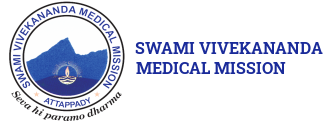
Email Address
info@missionvivekananda.org.in
Phone Number
+91 8589991227
Our Location
Agali ,Palakkad-678581
The Adolescent Girls Health Project (AGHP), launched in February 2021 by the Swami Vivekananda Medical Mission with support from UST-CSR, aims to improve the overall health and nutritional status of tribal girls through behavioral change communication and dietary interventions.
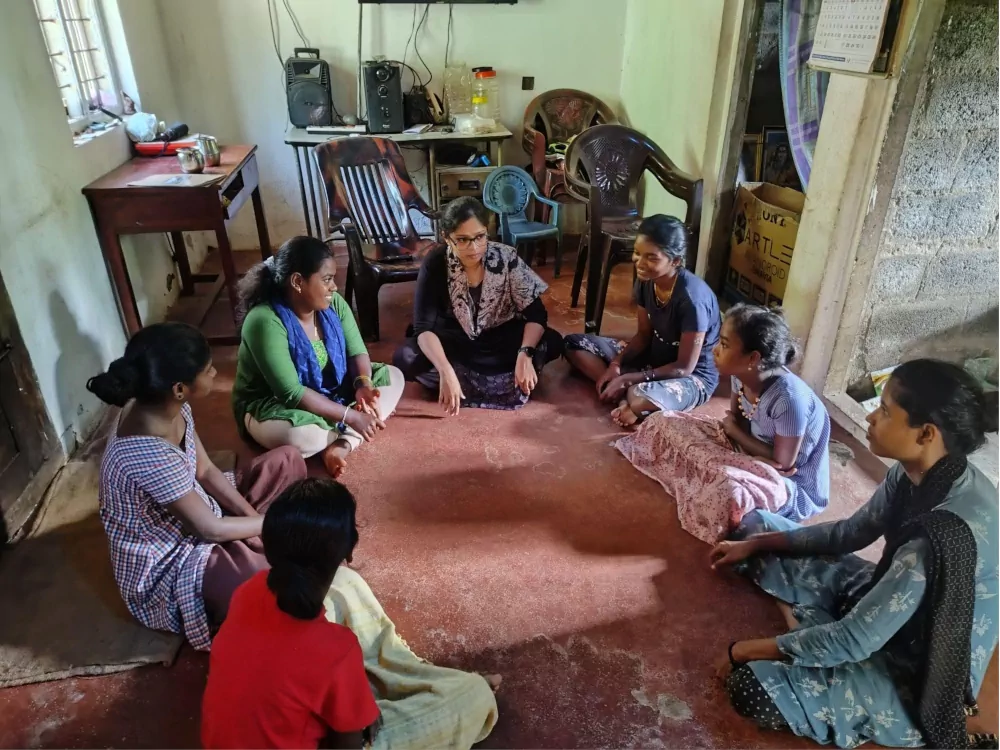
Approach:
The project involves creation of girls peer-groups in the tribal villages. These groups meet regularly and discuss common issues. During these group meetings, behavioral change communication in a wide range of topics related to adolescent health and nutrition is imparted. These topics are covered through interactive sessions, games, and activities. The girls are encouraged to take both collective and individual actions, making small adjustments or tweaks to improve their nutritional and health habits.
As part of the project, we also provide some dietary support in the form of a monthly ready-to-eat millet-based nutrimix powder, along with support in setting up backyard kitchen gardens and poultry (egg-based). The millet-based mix, along with vegetables and eggs, aims to improve dietary diversity and increase the intake of essential micronutrients, including proteins and vitamins among adolescent girls.
The first phase of the project, implemented from 2021 to 2024, reached 709 adolescent girls across 90 tribal villages, organized into 90 groups (30 in first year, 60 in second year and 90 in third year). The focus areas included nutrition, menstrual hygiene, reproductive health, and mental health.
Outcomes of first phase
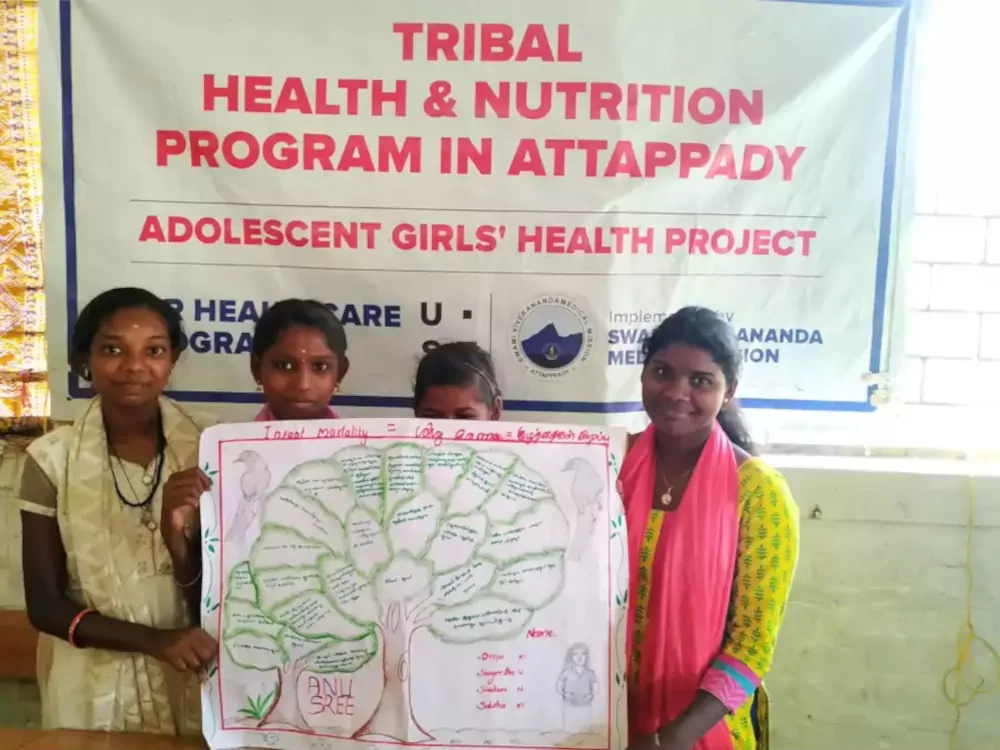
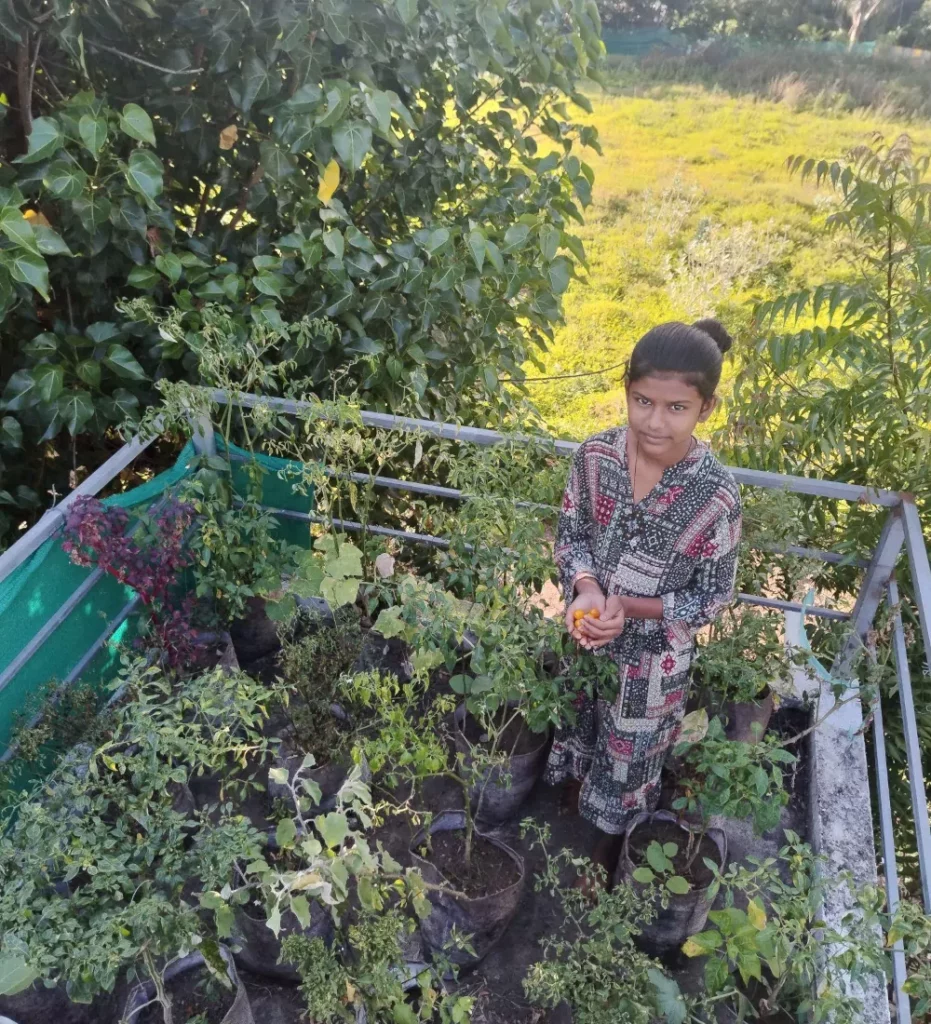
Rationale for second phase:
Therefore, a second phase was initiated in early 2024 with the following additions:
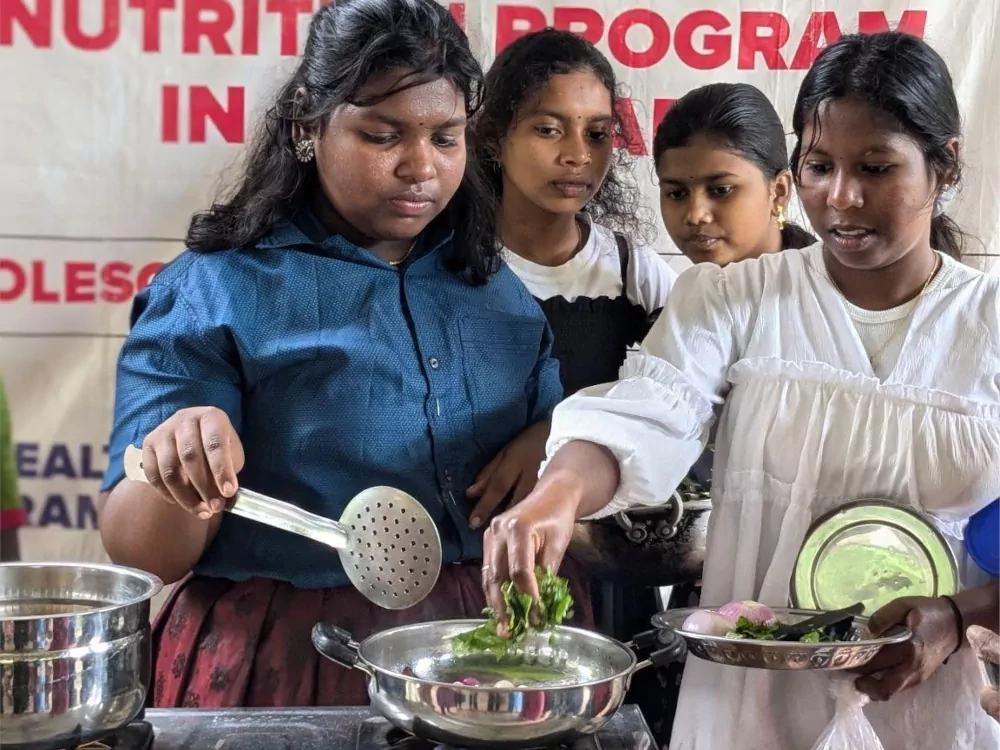
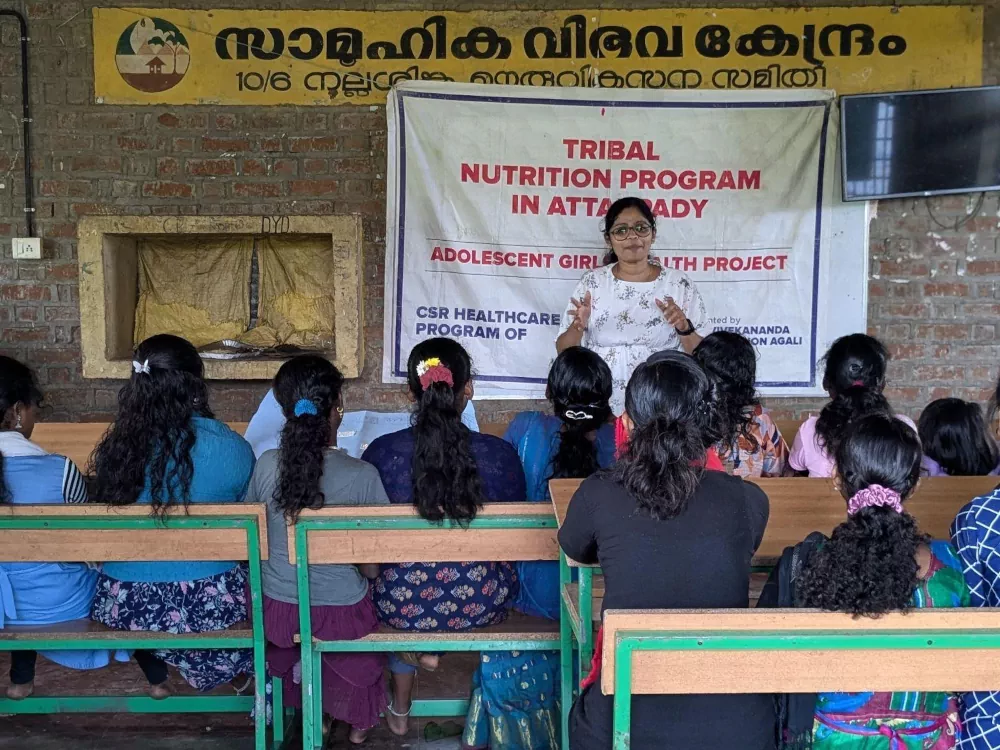
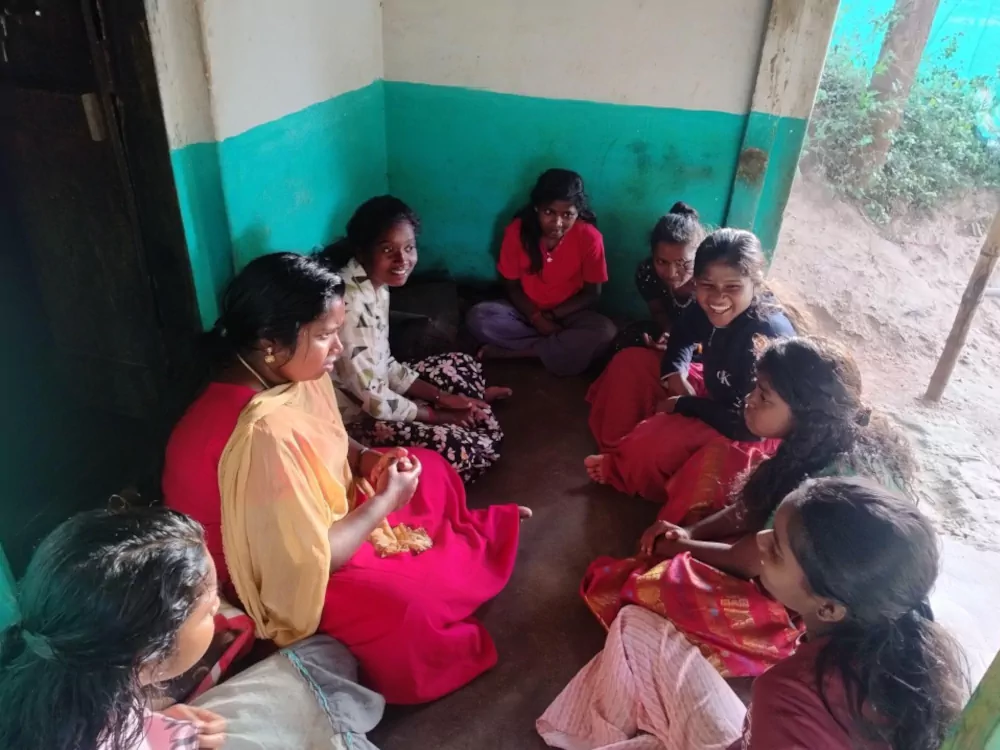
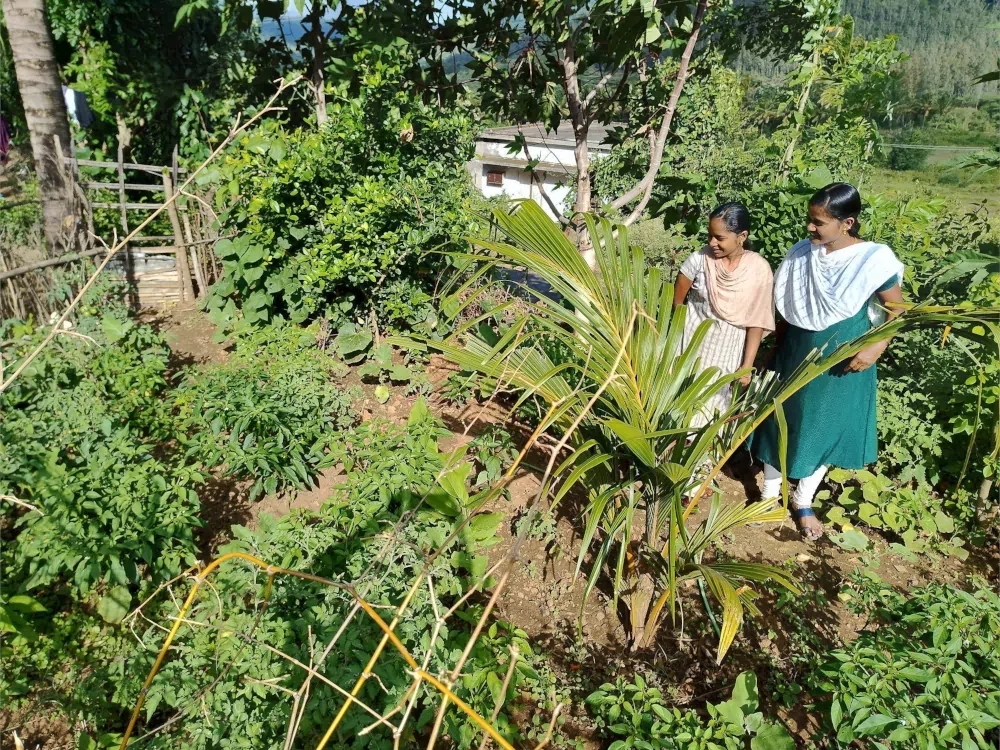
Project for Tribal Adolescent girl’s health and nutrition in Attappady was formally inaugurated by Dr Velumani, Ayurvedic Doctor from the tribal community on February 15, 2021. The project started with a 7 day training-of-trainers (TOT) program of cluster coordinators.
The project is supported by the CSR health care program of UST. The training program concluded on Friday 21, 2021 with a valedictory function.The function was attended by the CSR Ambassador of UST, Sri Prashant Subrahmanian; who was immensely supportive and helpful in initiating this project.Sri Sunil Balakrishnan, Chief Values Officer, UST who joined the function through online platform, gave the inaugural address.
The CSR head of UST, Smt.Smitha Sharma also joined through online platform. Sri Sasikumar , secretary of Nila Seva Samithai, gave the felicitations.
The adolescent girl’s health and nutrition project has been initiated to bring the improvements in health and nutritional status of tribal adolescent girls of Attappady.One of the reasons of high infant mortality rate in Attappadi is poor health and prevalance of anemia in pregnant mothers.The project is initialy being planned to be implemented in 30 tribal hamlets and is expected to cover around 500 adolescent girls.
The seven day training-of- trainers (TOT) program covered topics on Group formation, organizing group meetings, improving group morale, problem identification, adolescent health and nutrition, menstrual hygiene, sexual and reproductive health, prevention of sexual exploitation, mental health. Sessions on each topic were taken by experts from the respective fields.
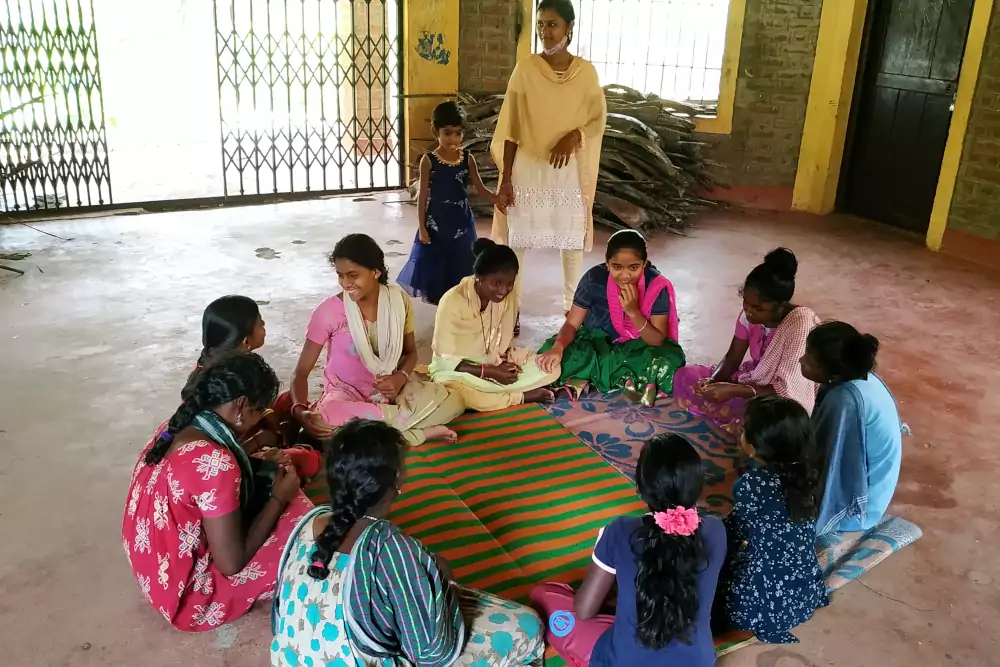
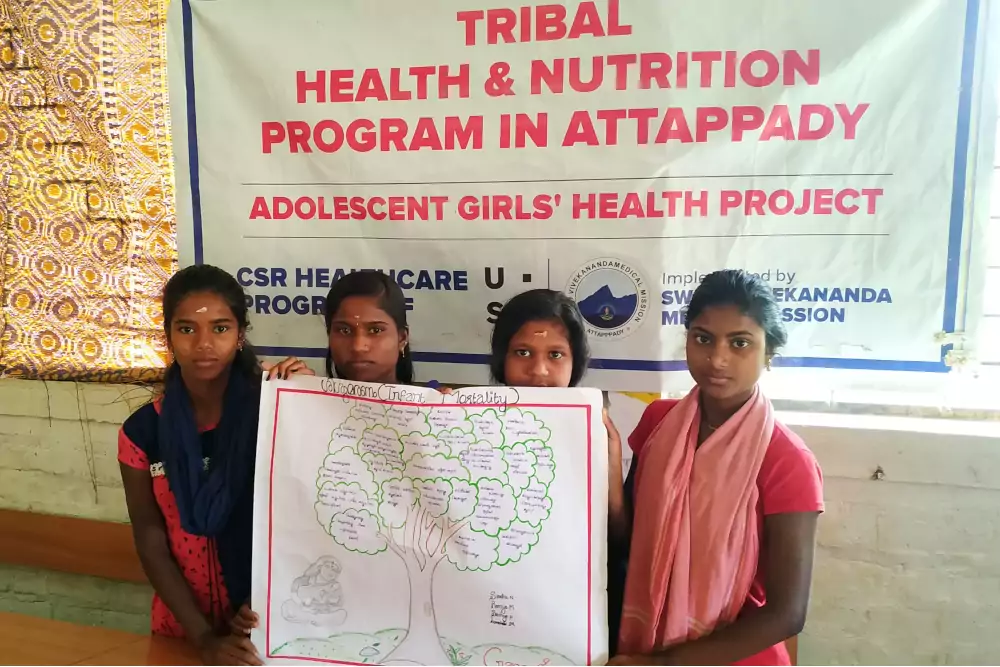
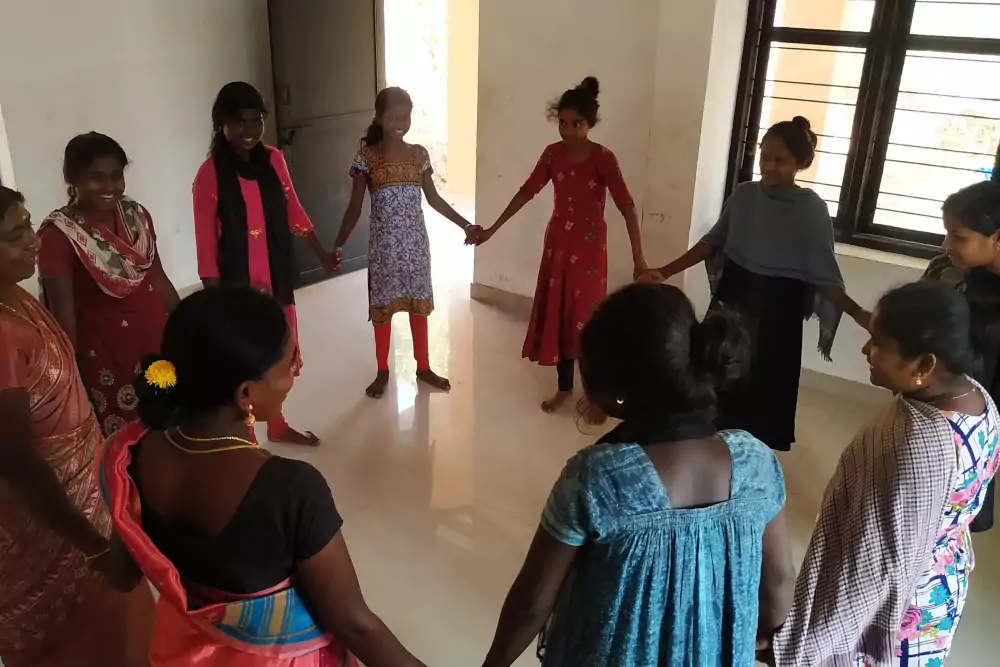
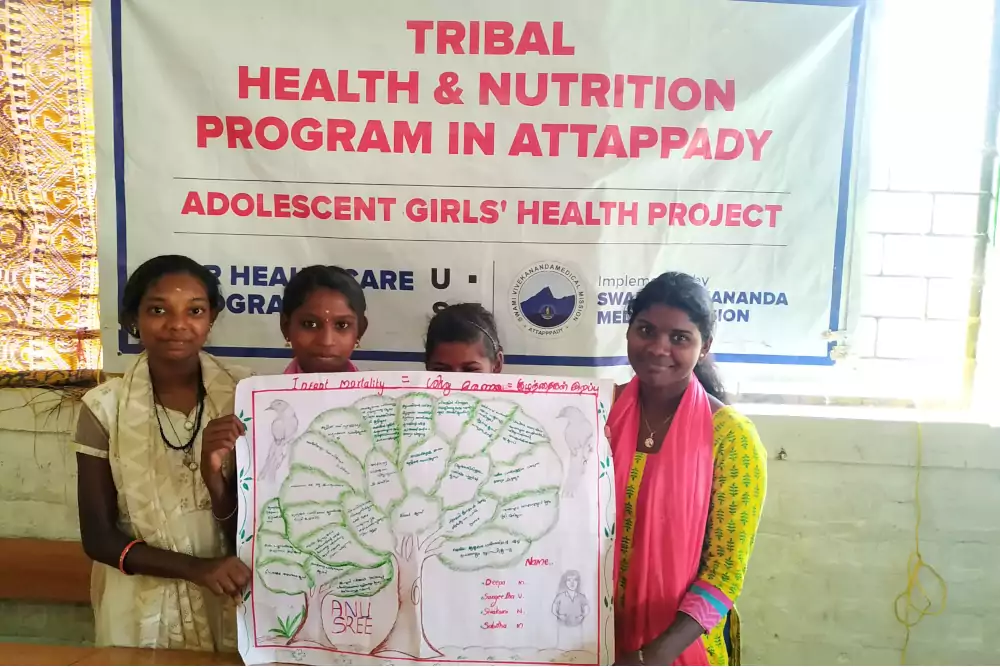
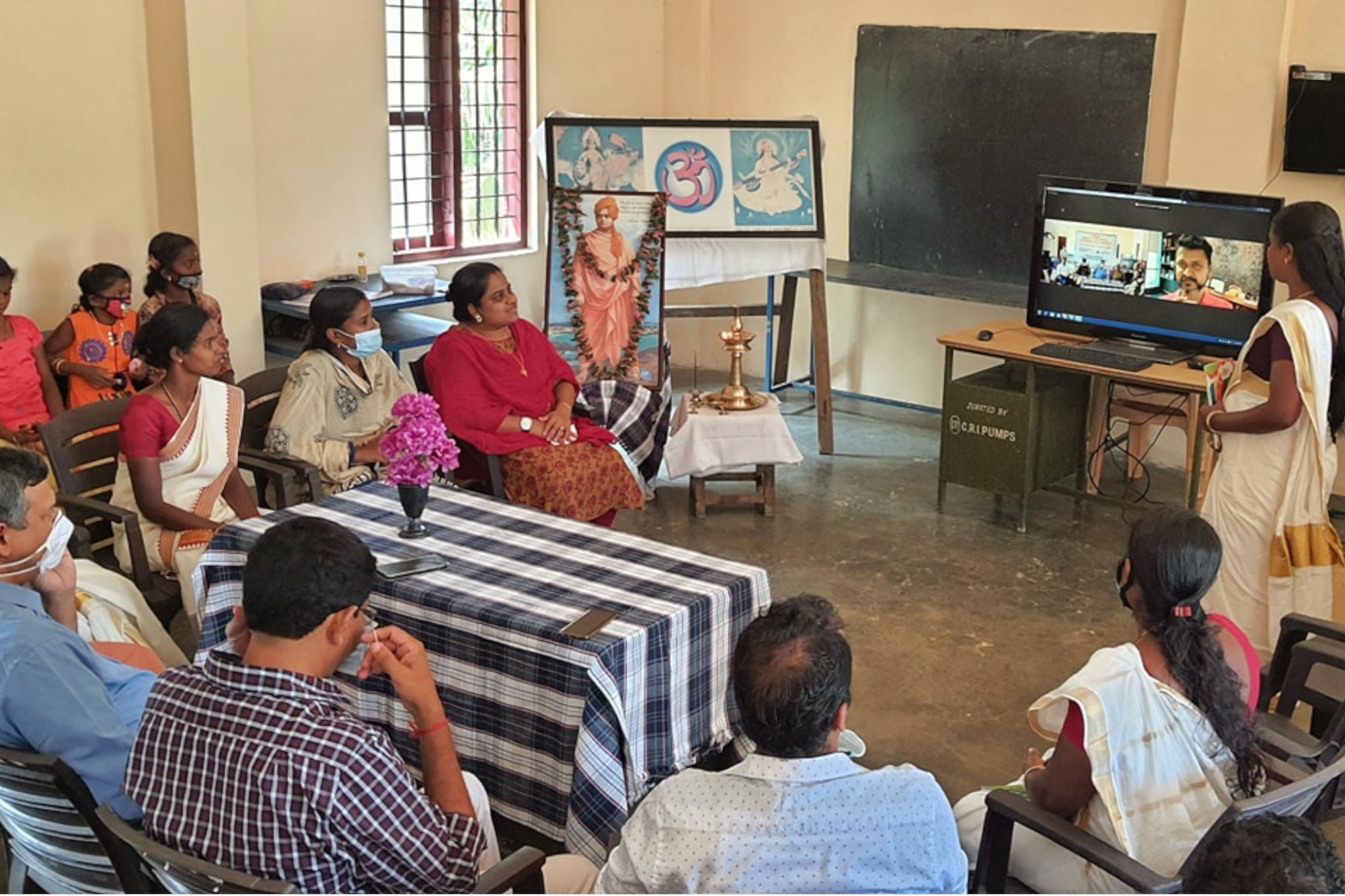
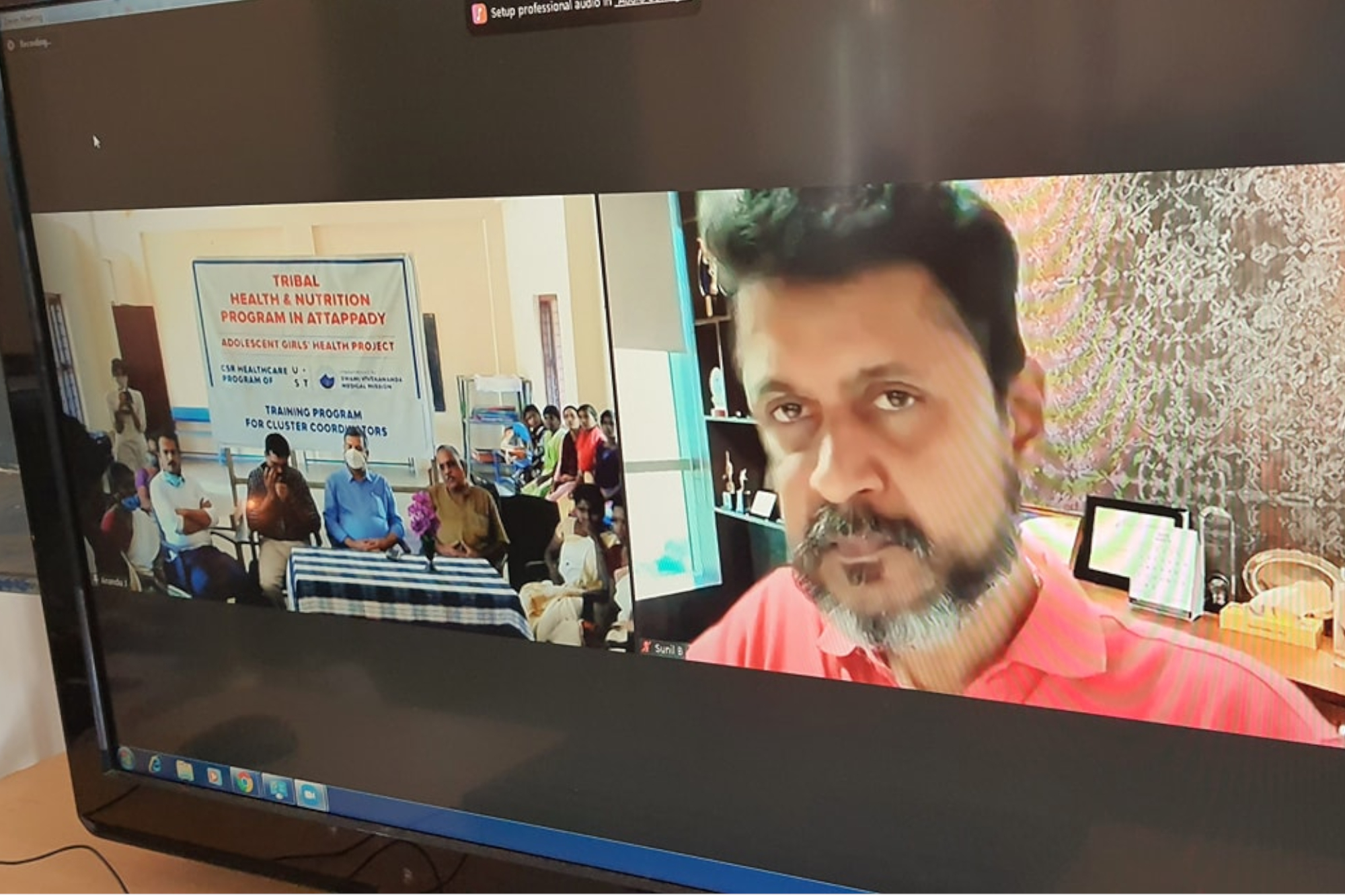
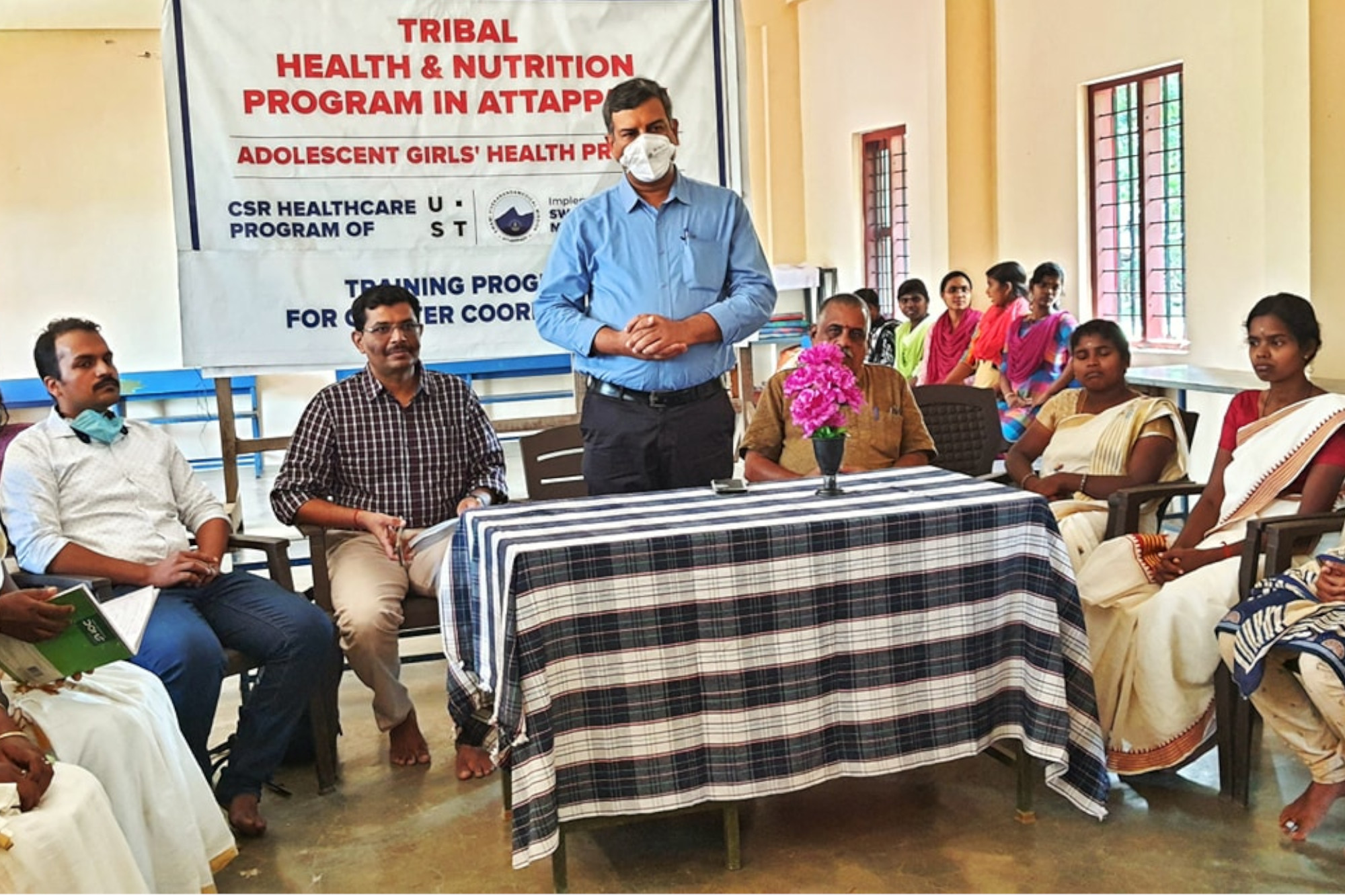
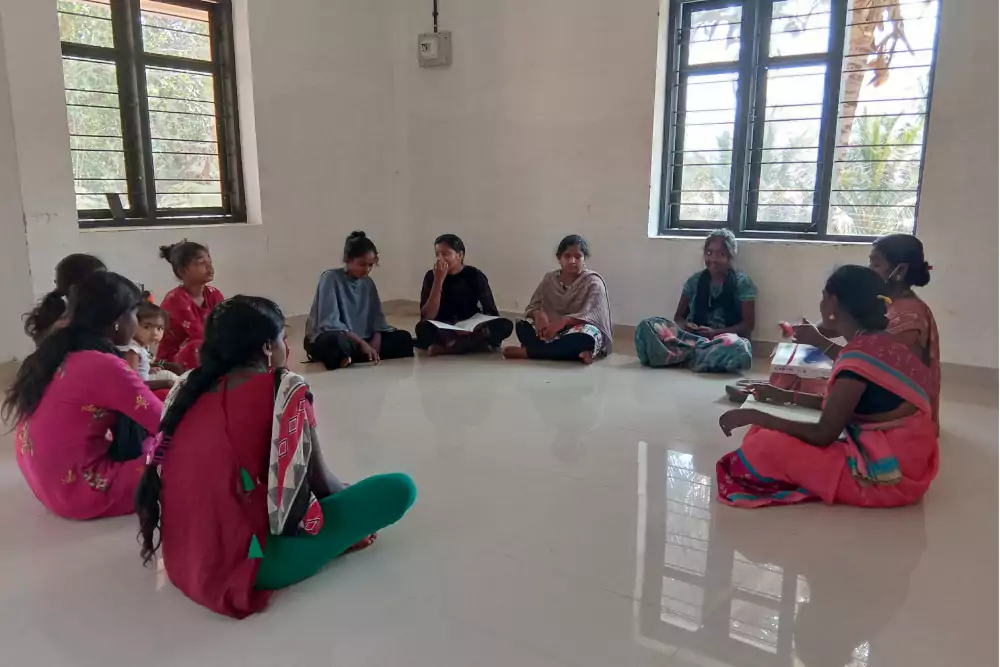

Project coordinator